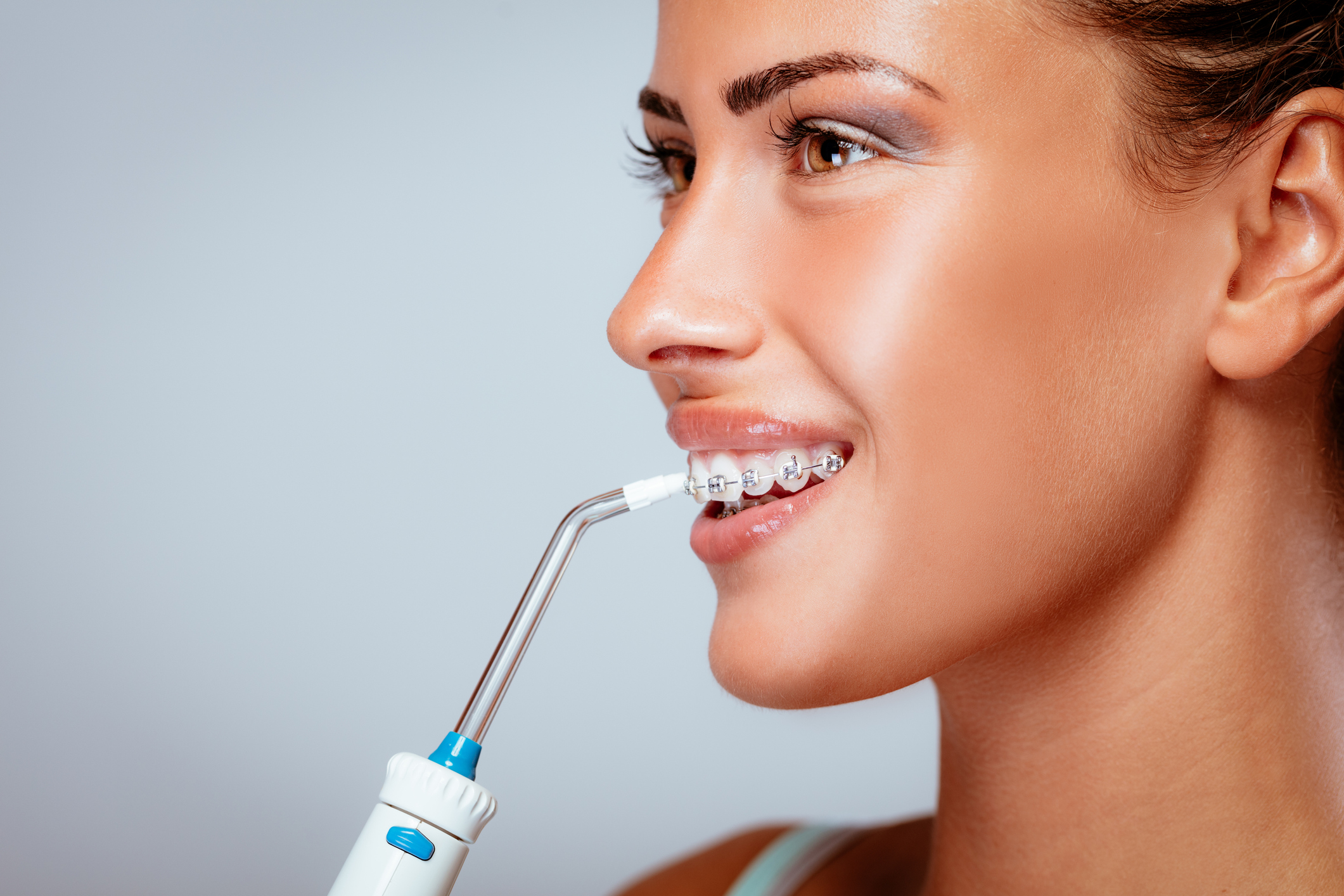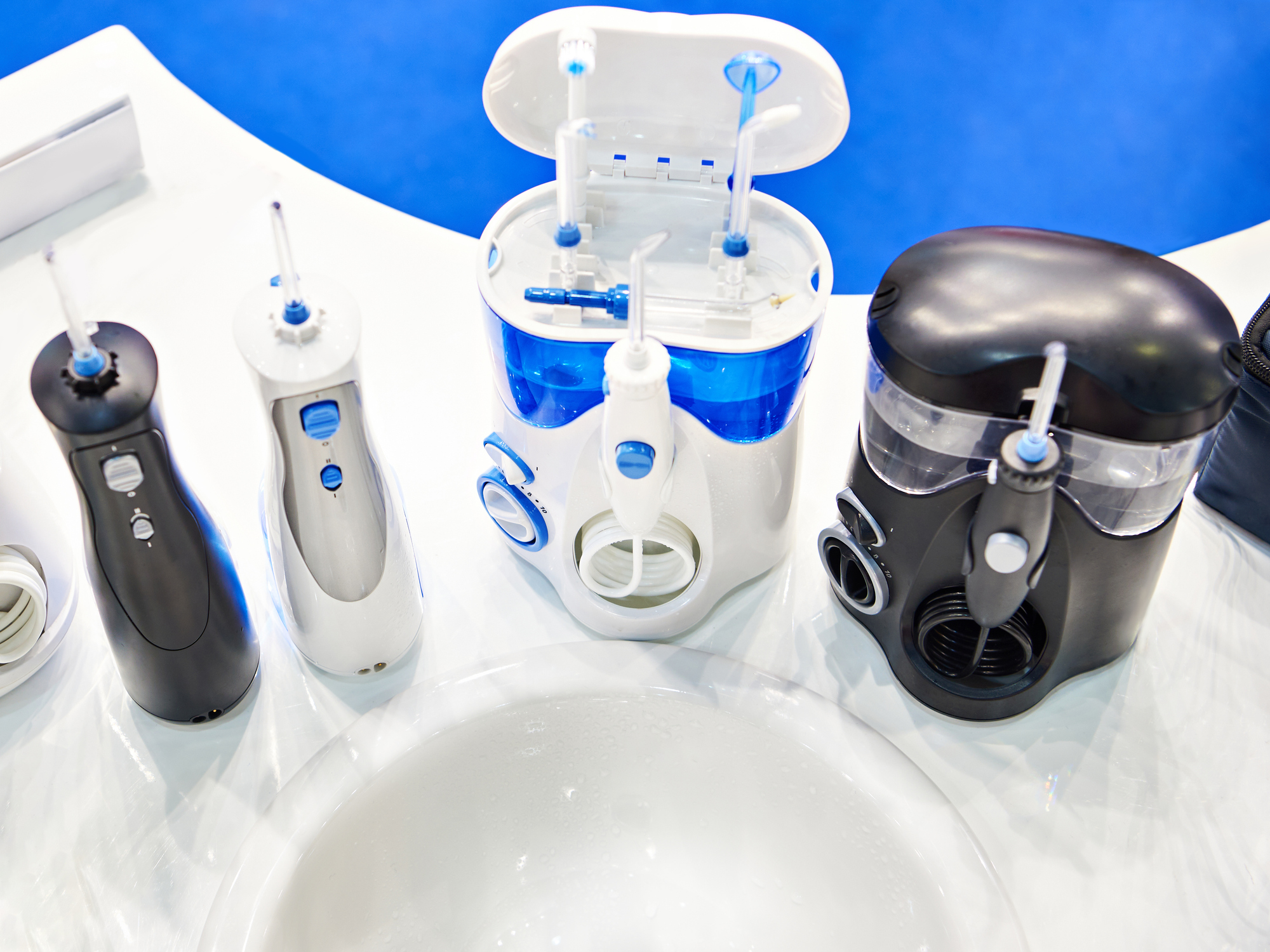When it comes to our teeth, there’s a common enemy we’re all fighting: PLAQUE. Plaque is that sticky deposit on your teeth where bacteria can proliferate. And, when it’s not removed, it can harden into tartar which can only be removed by a dental professional during routine cleanings, which we do all the time at Smile Advanced Dental Center in Summerville, SC.
The good news is that regular brushing AND flossing can be instrumental in the battle against plaque. But what about what kind of toothbrush and floss? Studies have shown that an electric toothbrush can be more effective in removing plaque. But does the same effectiveness go for floss, what with all the water flossers on the market?
Spoiler alert: Sometimes. But not always.
Contrary to what you might think, a fancy tool isn’t always going to give you a leg up when it comes to winning the war on flossing. But here’s everything you need to know about water flossing versus regular floss.
What is water flossing — and is it better than regular string flossing?
Water flossing uses a pressurized stream of water to remove food particles and plaque that are stuck between teeth and along the gum line — and it can be effective. The thing to remember is that water flossing and string flossing are actually two completely different methods.
“Water flossing doesn’t necessarily act as a replacement to string floss,” says Dr. Stephen Parker of Smile Advanced Dental Center. “You’re adding a new tool to your utility belt.”
That’s because water flossing covers more surface area while string floss can be more effective for wrapping around each tooth and getting to the spaces in between.
“Where we see the most success with water flossing is with anyone who has advanced dental work,” adds Dr. Parker. “For my patients with braces, bridges, and implants — anything that they weren’t born with — water flossing is an excellent solution when regular floss is a nuisance or an impossibility.”
How often should I use a water flosser?
Regularly — meaning, twice per day, just like regular brushing and flossing.
“I’ve always said that the best toothbrush is the one you use twice a day,” says Dr. Parker. “The same goes for floss.”
If the choice is between a water flosser or not flossing at all, then use a water flosser — by all means.
However, if you’re diligent about string flossing and don’t have any major oral issues or concerns, you don’t need to invest in a water flosser, too — unless you want to up the ante on your daily dental regimen.

Water floss or brush first?
It may seem like a silly question, but it’s important to know if it’s better to water floss or brush first!
The general consensus is this: By using a water flosser prior to toothbrushing, you can remove food and debris from your teeth thus enhancing the effectiveness of both toothbrushing and toothpaste — and post-brush string flossing!
Looking for the best water flosser for braces?
The team at Smile Advanced Dental Center generally recommends the Waterpik® Water Flosser for its optimal combination of pressure and pulsation. The brand has a specially designed Orthodontic Tip which does a good job of removing plaque and food particles around brackets and wires while massaging and stimulating the gums to improve gum health.
With Waterpik, you only need about 60 seconds to floss. This is far easier and more practical than using a floss threader for braces — especially for young orthodontics patients.
An independent clinical study has even shown that Waterpik is up to three times as effective as dental floss and up to five times as effective as a manual toothbrush for cleaning around braces.
Want to invest in a water flosser for yourself or your kids? Give our office a call at 843.873.1261 and we can help you out. And don’t forget to schedule your bi-annual teeth cleaning and exam for you and your family.


0 Comments